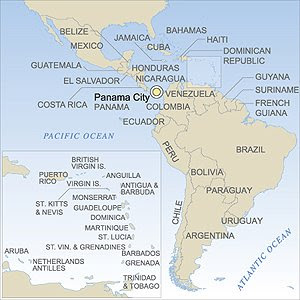china confidential
Monday, December 15, 2008
Israel Preparing to Fight Iran, Hezbollah, Hamas

Foreign Confidential....
Israel is preparing for war with nuclear-arming Iran and its Islamist proxies, Hezbollah and Hamas.
But the Jewish state is still hopeful that Iran's secular Arab ally, Syria, will stay out of the coming conflict.
Hezbollah, which is bristling with missiles, is a major concern. The Lebanese Shiite group believes it has no chance of surviving if the Iranian regime is toppled. Thus, Hezbollah is expected to bombard Israeli cities and towns in a coordinated reprisal with Tehran following Israeli air attacks on suspected nuclear and missile sites in Iran.
Iranian missile attacks on Israeli population centers could trigger a devastating Israeli response: obliteration by nuclear missiles.Israeli FM: We Can't Tolerate Hamas-Run Gaza
 Foreign Confidential....
Foreign Confidential....
Israel can't tolerate an Islamist state in the Gaza Strip.
So says Israeli Foreign Minister Tzipi Livni, as a six-month truce with Hamas, which controls Gaza, comes to an end.
Gwen Ackerman reports from Jerusalem:“Hamas cannot continue to control Gaza,” Livni said in remarks to high school students today. “In the long term, Israel cannot tolerate an extreme Islamic state on its southern border.”
The truce, or “lull,” as both sides call it, has been repeatedly violated in recent weeks as Palestinian militants lob rockets at Israel and Israeli troops and aircraft fire on launchers. The period of calm officially ends Dec. 19.
Livni’s comments were the harshest the Israeli leader has made to date and came in the midst of an election campaign that began after Prime Minister Ehud Olmert resigned to fight corruption allegations. Livni, who took over as leader of their Kadima party, failed to form a new coalition. Israelis go to the polls on Feb. 10.
Housing Minister Ze’ev Boim echoed Livni’s remarks in an e- mailed statement calling on Defense Minister Ehud Barak to act against Hamas before the end of the truce.
Click here to continue reading.Hanukkah Message: Yes, We Can!
Gold Continues Climb as Dollar Weakens

Foreign Confidential....
As expected (see story below), gold continued its climb Monday.
The precious metal rose in Europe as "the dollar weakened against the euro and the yen, boosting interest in the metal as a currency hedge," journalist Jan Harvey says.
Spot gold was quoted at $826.90/828.90 an ounce at 0950 GMT, against $819.90 an ounce in New York late on Friday.
Gains in other commodities and equities also fueled the markets, according to Harvey. The Reuters correspondent reports from London:Traders are looking ahead to a decision on U.S. interest rates on Tuesday, after the Federal Open Market Committee's two-day policy meeting.
A cut in rates is likely to have a significant impact on the foreign exchange market, and consequently on gold.
"We have the Fed interest rate decision this week... which should be the last big event of the year," said Afshin Nabavi, head of trading at MKS Finance in Geneva.
"Everyone is banking on a lower interest rate in the U.S. If the dollar continues to lose value, of course it will benefit gold."
Gold was reacting to a move higher in the euro versus the dollar, with selling of physical gold stocks in the Far East and technical resistance keeping a lid on gains, he said.
Gold tends to track the euro/dollar exchange rate closely, as it is often bought as an alternative investment to the U.S. currency and tends to move in the opposite direction to it.
The dollar slipped against both the yen and the euro, striking a two-month low against the single currency as traders weighed comments from European Central Bank officials suggesting rate cuts may not be imminent.
Interest rate differentials between the United States and the euro zone are likely to widen, dealers said. The Federal Reserve is widely seen cutting rates by at least 50 basis points on Tuesday.
Equity markets are also rallying, demonstrating a sharper appetite for risk that is also buoying commodities. Asian stocks climbed nearly 4 percent on hopes the U.S. car industry will be bailed out. European shares rose at the open.
Firm buying interest also trickled into other markets, with commodities such as oil and industrial metals posting strong gains in Asian trade. Oil rose more than $1 a barrel on expectations of a deep OPEC supply cut.
Among other precious metals, spot silver tracked gold higher to $10.36/10.44 an ounce, against $10.23 in New York late on Friday.
Continue here.Turkish Intellectuals Apologize to Armenians

Foreign Confidential....
Words matter.
The AP's Suzan Fraser reports from Ankara on an important development in Turkey's political life and relations with the Armenian people.A group of about 200 Turkish intellectuals on Monday issued an apology on the Internet for the World War I-era massacres of Armenians in Turkey.
The group of prominent academics, journalists, writers and artists avoided using the contentious term "genocide" in the apology, using the less explosive "Great Catastrophe" instead.
But the apology is a sign that many in Turkey are ready to break a long-held taboo against acknowledging Turkish culpability for the deaths.
Historians estimate that, in the last days of the Ottoman Empire, up to 1.5 million Armenians were killed by Ottoman Turks in what is widely regarded as the first genocide of the 20th century. Armenians have long pushed for the deaths to be recognized as genocide.
While Turkey does not deny that many died in that era, the country has rejected the term genocide, saying the death toll is inflated and the deaths resulted from civil unrest during the Ottoman Empire's collapse.
"My conscience does not accept that (we) remain insensitive toward and deny the Great Catastrophe that the Ottoman Armenians were subjected in 1915," read the apology. "I reject this injustice, share in the feelings and pain of my Armenian brothers, and apologize to them."
Nearly 2,500 members of the public also signed the online apology, giving their support to the intellectuals.
Continue here.OPEC Cutting Oil Output at Worst Time for US

Dateline USA....
Crude oil prices rose today, touching $50 in New York, in anticipation of further OPEC production cuts.
The cartel's move could be considered a form of financial warfare against the United States and other oil importing nations.
Depressed crude prices constitute a major form of relief for depressed economies, including the U.S., which is trying to prevent a recession from deepening into a full-blown remake of the Great Depression of the 1930s. Continued price hikes would threaten millions of unemployed, partially employed and hard-pressed working Americans with pauperization.
President-elect Obama owes it to the nation to ignore the rants and raves of elitist, environmental extremists and charlatans like former Vice President Al Gore and give serious consideration to establishing a national oil company. Limited by law to domestic production and exploration, it would develop resources that are profitable but perhaps not profitable enough for the multinationals and large independents, including onshore and offshore light and heavy crude oils and oil that can be lifted out of old fields using enhanced recovery methods (some of which are similar to heavy crude production methods). A national oil company could also develop and explore for domestic natural gas and extend the nation's natural gas infrastructure.
A U.S. national oil company would put legions of people to work, stimulate the economy, and do more for energy independence than all the alternative energy projects that could conceivably be built, although the government should also follow through on that front despite widespread agreement among serious energy experts (that excludes the windbag Gore) that the world will continue to run on oil and gas for the next two decades.
- Andre PachterUS Left Out of Left-Leaning Latin-Caribbean Summit

Foreign Confidential....
Joshua Goodman reports from Rio de Janeiro on an event that signifies Latin America's anti-American drift: Latin American and Caribbean leaders gathering in Brazil tomorrow will mark a historic occasion: a region-wide summit that excludes the United States.
Almost two centuries after President James Monroe declared Latin America a U.S. sphere of influence, it is breaking away. From socialist-leaning Venezuela to market-friendly Brazil, governments are expanding military, economic and diplomatic ties with potential U.S. adversaries such as China, Russia and Iran.
“Monroe certainly would be rolling over in his grave,” says Julia Sweig, director of the Latin America program at the Council of Foreign Relations in Washington and author of the 2006 book “Friendly Fire: Losing Friends and Making Enemies in the Anti-American Century.”
The U.S., she says, “is no longer the exclusive go-to power in the region, especially in South America, where U.S. economic ties are much less important.”
Since November, Russian warships have engaged in joint naval exercises with Venezuela, the first in the Caribbean since the Cold War; Chinese President Hu Jintao signed a free-trade agreement with Peru; and Brazil invited Iranian President Mahmoud Ahmadinejad for a state visit.
Tuesday, 16 December 2008
Posted by
Britannia Radio
at
08:59
![]()





















